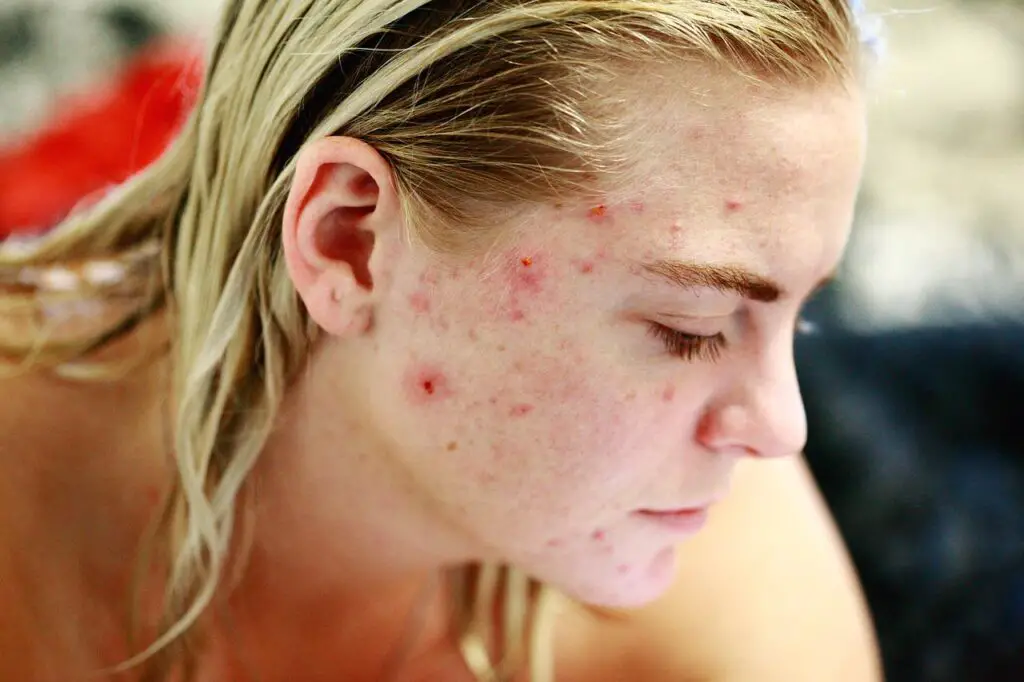Seborrheic dermatitis is a skin condition that can cause red, itchy, scaly patches on the skin. It’s not clear what is the root cause of seborrheic dermatitis, but it’s thought to be related to an overgrowth of Malassezia, a type of yeast that is found on the skin. Seborrheic dermatitis is not contagious and cannot be passed from one person to another. However, the condition can run in families due to genetic predisposing factors.
Let’s take a deep dive:
Is seborrheic dermatitis contagious?
A skin contagious disease can be caught by touching someone who has the condition or a piece of infected clothing. Skin disorders like scabies, herpes, ringworm (a type of fungal infection) and Candida yeast infections can all be transmitted this way.
Even though seborrheic dermatitis is primarily related to an overgrowth of Malassezia yeast, this fungus is not considered to be contagious. Therefore, seborrheic dermatitis is not contagious. And neither is dandruff. However, seb derm can spread to other parts of your body if left untreated.

Is seborrheic dermatitis a fungal infection?
Malassezia, the fungus that plays a huge role in the condition, is present on healthy skin. In people who are already susceptible, when the fungus overgrows, it can cause or trigger seborrheic dermatitis.
While seborrheic dermatitis is often referred to as a ‘fungal infection’ or a fungus, it’s actually a sign of a hyper-reactive immune response to Malassezia and its byproducts.
Further reading: Is seborrheic dermatitis a fungus?
Can seborrheic dermatitis spread?
You know how when you ignore something for long enough, it resolves all by itself? That hardly ever happens and it won’t happen with seborrheic dermatitis.
Even though seborrheic dermatitis is not transmitted from one person to the next, the rash can spread from one body part to another. When I first got seborrheic dermatitis, it was only one teeny itchy patch on my cheek. Then it looked like a butterfly rash. And before I knew it, my whole face and neck was affected. Thank God by that point I figured out what it was and got on to the right treatment.
I teach you how to treat seborrheic dermatitis at home and prevent a flare in my free mini course. Just sign up at the end of this article and I’ll send you the information.
Can seborrheic dermatitis worsen if not treated?
People don’t get to the right diagnosis of seborrheic dermatitis straight away. If you’re like most, and you look back, you’ll realize that your rash probably started as just a patch on your face. Or you may have had dandruff for years beforee finding that your neck is now itchy and flaky too.
As long as youd don’t treat your seborrheic dermatitis rash and don’t make some significant lifestyle changes, SD can worsen and even spread to other parts of the body. You may also notice that the rash gets worse in certain areas or during certain times of the year.
Does seborrheic dermatitis run in families?
The main causes of seborrheic dermatitis are thought to be overproduction of sebum encouraging Malassezia overgrowth, an impaired skin barrier and a hyperactive immune response to Malassezia byproducts.
Most people don’t find anyone else in their family with seborrheic dermatitis. However, even though sebum excess is usually hormonal and lifestyle-related, oily skin tends to run in families.
A literature review published in 2017 found gene mutations and protein deficiencies that play a role in immune response and epidermal differentiation (strength of your skin barrier). While more research is needed to understand the genetic basis of SD, most experts belief that SD can run in families.
What’s certain is that seborrheic dermatitis doesn’t spread through direct contact from one family to another.

To wrap up
Seborrheic dermatitis is not a contagious disease. There is no need to worry about spreading the disease to others. However, you need to make sure you get the correct treatment so SD doesn’t spread to your other body parts.
You may be interested in Seborrheic dermatitis around the mouth: Causes, symptoms and treatment and Seborrheic dermatitis of the nose: Causes, symptoms and treatments.
Pingback: What is seborrheic dermatitis?
Pingback: Is Seb Derm Contagious? (30/07/2023)
Pingback: What Happens When Seborrheic Dermatitis Is left Untreated